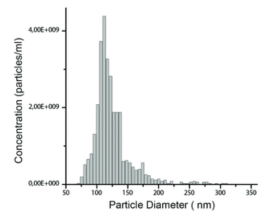Exosomes are specific subclasses of extracellular vesicles that convey critical information in the form of small RNAs, mRNAs, bioactive lipids, and proteins. As a key mediator in cell-cell communication, exosomes play an important role in many aspects of physiology and disease. Exosome characterization offers tremendous clinical opportunities in the field of liquid biopsy. Realizing this potential requires the detection and characterization of exosomes with high precision and reproducibility, which is challenging for any project or study. Lifeasible provides customers with all the experience and technical capabilities in the field of exosomes to facilitate a comprehensive analysis of exosomes.
Exosomes are prone to residual contaminants of the non-vesicular structure during purification, characterization of multiple aspects of purified exosomes is critical for their use in downstream experiments. The International Society for Extracellular Vesicles (ISEV) recommends three aspects for the isolated exosomes: size, morphology, and surface markers. In addition, a comprehensive exosome contents analysis can be performed through high-throughput sequencing, protein profiling, and metabolomic analysis.
 Figure 1. Size distribution and the concentration of EV particles. (D. Maisano et al., 2022)
Figure 1. Size distribution and the concentration of EV particles. (D. Maisano et al., 2022)
Lifeasible has developed and implemented several characterization and validation methods for research and clinical purposes, allowing the analysis of purity and composition and quantification of exosomal samples. The following are techniques for analyzing exosome size, morphology, surface markers, and endosomes.
Exosome Size
Exosome Morphology
Exosome Surface Markers
Exosome Inclusions
Other techniques for assessing the quality and quantity of exosomal agents
Lifeasible has a wide range of testing instruments and technologies to provide customers with a comprehensive range of exosome characterization tests. In addition, based on extensive experience in exosome detection and characterization, Lifeasible also offers an analysis of purity (particle number/protein amount) and vesicle ratio of purified exosomes, along with quantitative exosome analysis.
Lifeasible provides quality life science solutions to companies and research institutes, helping life scientists solve problems in the process of research, development, and technology transformation, improving research efficiency, and accelerating the acquisition of research results. We have strong technical service strength and professional marketing and after-sales service team. In the future, we will continue to uphold the spirit of never-ending and advancing with the times, keep up with the development trend of the life science industry, and provide users with more excellent products and quality services. If you are interested in our services and products, please do not hesitate to contact us anytime.
Reference